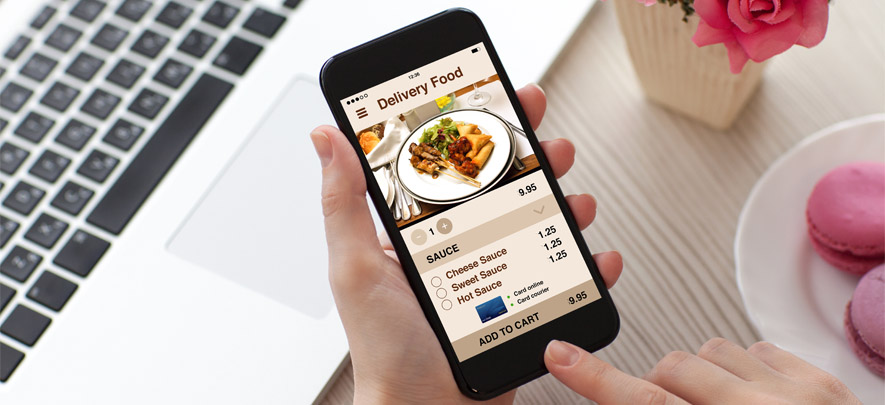How to start your online food delivery service?

Entrepreneurship
254 week ago — 6 min read
Imagine someone exhausted on a Sunday evening after a house cleaning spree. They wouldn’t mean to cook anything healthy, albeit their Yoga instructor’s last instruction. What could be their best bet other than ordering food online like 86% of consumers?
Possibly, to order directly from their favorite restaurant next street than just any aggregator app. This keeps them assured of the quality and rates. 70% of consumers prefer so to direct their money to the pockets of the restaurants rather than a mediator.
The ongoing pandemic has changed many things. People would prefer the cozy cleanliness of their homes for a very long time onwards. So, through a website or, more preferably, a mobile app, give that instant push to your brick-and-mortar restaurant business you have been craving for.
Also read: Why is it so critical to read food labels post Covid-19?
Analyse the market and define your niche
Just because you serve a wide variety of cuisines in the premise doesn’t mean you e-serve all of them.
A virtual kitchen can cover farther places to deliver out of the vicinity than the premise. So, you need to analyze your target markets in the city.
What if the area you plan to deliver has a record of ordering more pizzas then your traditional menu? Such murky waters are tough to test initially, and you should avoid dirtying your ankles.
Certain foods need to be served directly from the kitchen to the table. They might not tolerate a delivery vehicle. Think before you offer them on the e-menu.
You might like to start with the hit items from your menu initially. Once you grip the market, include all the recipes in delivery.
Amend your website and deploy a mobile app
Assuming you’ve your restaurant’s website in place already, you need to amend this virtual shop for deliveries. Likewise, you need to deploy a mobile app that resembles your website and emulate your brand’s logo, fonts, and pictures.
Following features should be a part of both the websites and the app:
- Login and profile creation for customers, delivery teams, and administrators.
- Dashboards revealing stats to the admins
- Menu bifurcated across cuisines with price and pictures
- Cart to add and amend the order
- The popular payment gateway for cashless transactions
- An order tracking system with map and GPS
- Order monitoring for admin and delivery
- Chatbot enabled helpdesk
- Additional methods to reach out to the restaurant
- Offers and deals section
Plan the delivery
Do you know that delivery can turn out cumbersome in an online food delivery service in the lack of forethoughts?
Data conclude that 74% of customers prefer inhouse deliveries over a third party. Nevertheless, before you decide to in-house the task or outsource, you should weigh the options. What is your last-mile delivery? What would be the mode to travel? Would your app support the required features?
For an in-house delivery system, you need to fulfill continuous investment in vehicles, fuel, delivery team, insurance, packaging, and a tracking facility.
Also read: GlobalLinker’s ecommerce platform even makes product shipping & delivery easy for you
Mull over packaging
Although it looks trivial, packaging can be a great opportunity for branding. You might already offer a pickup facility and have a packaging system in place. But for delivering regularly, your parcels demand to carry your logo and name on packaging. This will help people to recall your brand.
Also, to organise the process, designate a space in your premise. This place should be hygienic, facilitate loading parcels to the delivery vehicles, and should store the supplies for quick access.
Create a digital presence and promote deals
Deploying an excellent app is only a stepping stone. Digital marketing is a boon for virtual businesses. You should leverage your social presence to broadcast your food ordering services. Promote your mobile app and menu as well.
Nothing excites food lovers more than a deal. Loyalty programs can spike customer lifetime value by 30%. Measure your user base’s sentiments through social media, and make amends in your offerings accordingly.
Go for a progressive web app (PWA)
Although optional, SMBs like yours shouldn’t ignore progressive web app in your e-service. For data troubled and network challenged folks in congested areas and small towns, PWA comes as a respite. And you can’t disappoint good bandwidth deprived small towns who’re embracing the food ordering culture fast. Companies like Ele.me and Starbucks have shown tremendous growth after deploying a PWA.
Also read: 8 tips to promote your ecommerce site that are easy and proven to be effective
Image source: shutterstock.com
To explore business opportunities, link with me by clicking on the 'Connect' button on my eBiz Card.
Disclaimer: The views and opinions expressed in this article are those of the author and do not necessarily reflect the views, official policy or position of GlobalLinker.
View Kiran 's profile
Most read this week










Comments
Share this content
Please login or Register to join the discussion